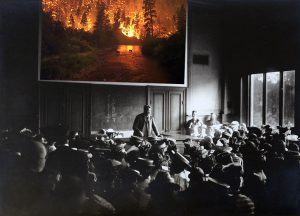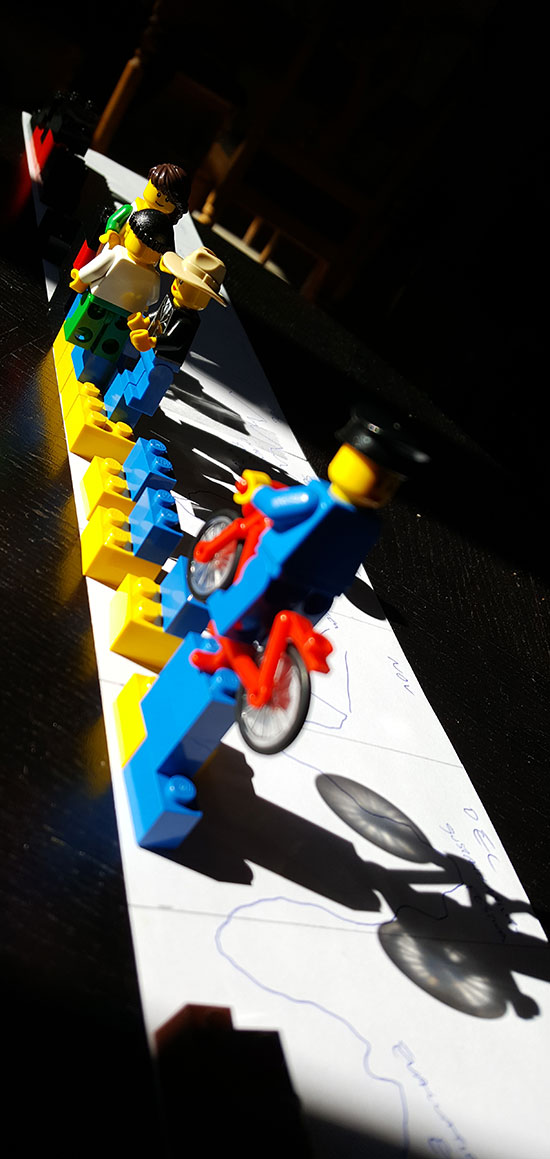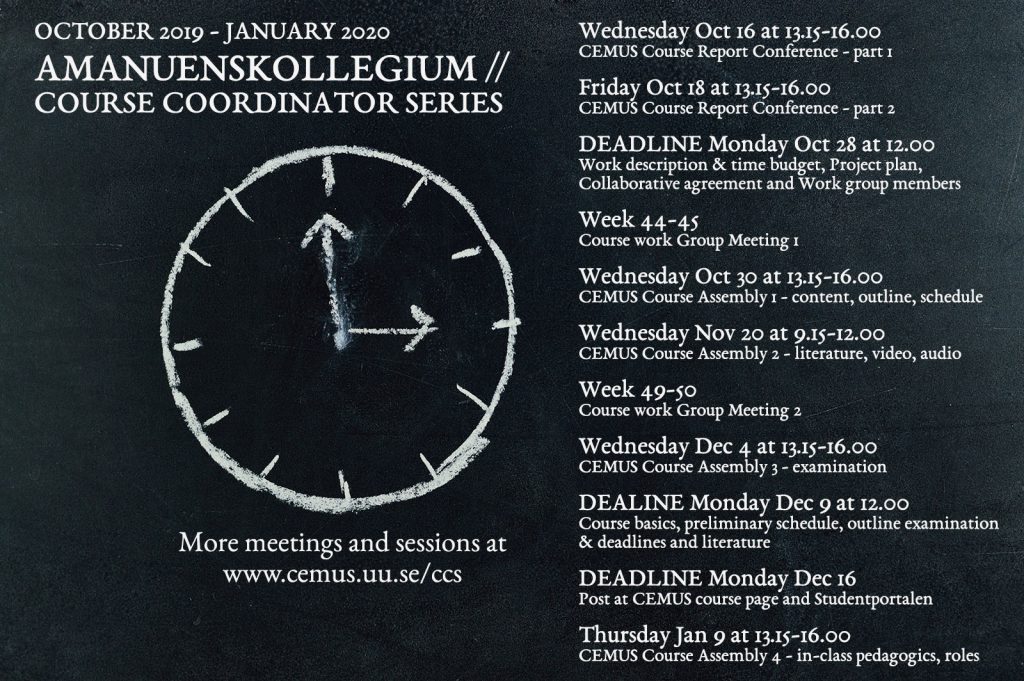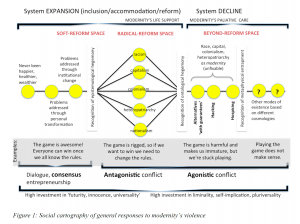Updated 2019-10-09 at 12.53 DM
October | November | December | January | February-June | July-September
Archive Autumn 2019 | Course Coordinators, Course Resource Persons, Resources, Guidelines and Work Process | Amanuensguiden // Course Coordinator Guide | Open events at CEMUS
Deadlines and time table
The meetings and material listed below will be explained further by instructions sent out by email and at actual meetings. The meetings and material are fundamental aspects of the work with your course and everyone is expected to participate – when it says EVERYBODY that means everybody working with an spring 2020 course. In other words – not being at a meeting/session is the same as not showing up for work. If you are sick or have other valid reason for not being part of a meeting, email Alexis Engström and specify why you can’t make be there. Staff meetings Wednesdays odd weeks at 12.10-13.00, CEMUS Fika every Wednesday at 15.15. Happy course coordination!
OCTOBER 2019
week 42
OPTIONAL
Wednesday October 16 at 9.15-10.15 A conversation with Derrick Jensen, in Baltic Library, Villavägen 16, read more here: http://www.cemus.uu.se/sept-11-dj/
“You have a sacred task as educators, as you know from the book [“Walking on Water” 2004] to lead forth and draw out your students, and I think that’s an incredibly important role, especially as discourse shuts down and becomes crazier and crazier by the day … just like we need to protect every wild place … I have a good friend who’s an environmentalist who the reason he does the work … is because as things become increasingly chaotic he wants to make sure that some doors remain open, by which he means, if Bull trout are still here in twenty years they may still be here in a hundred, if Redwood trees are still are here in twenty years, they may be here in a hundred, but if they’re gone now they’re gone forever. And , it’s the same with sanity, and it’s the same with discourse, that anything you can do to protect pockets of sanity, as things become increasingly chaotic, make sure that those doors stay open.”
– Derrick Jensen, October 16, 2019
NEW COURSE COORDINATORS
Wednesday October 16 at 10.15-12.00 Start-up new course coordinators at CEMUS, welcome to Abigail, Alan, Hanna, Ash, Amanda and Naomi!
EVERYBODY
Wednesday October 16 at 13.00-16.00 CEMUS Course Report Conference, Part 1: Themes and content from the spring courses – in Kollaboratoriet Uppsala, Östra Ågatan 19.
Instruction: In preparation for Part 1 of the course report conference, we ask you to put together a presentation in the form of Pecha Kucha 20×20. This concept is based on the premise that you have 20 slides (which can contain an image, a word, sentences, graphics or basically anything of your choosing) of which you will have 20 seconds per slide. In total the presentations should be 6 minutes 40 seconds. You may split this between you and your fellow coordinator if you desire.
We would like your presentation to reflect upon your impressions of your Spring course, below are some things to talk about. Keep in mind that this sessions is meant to serve as a first introduction to the new course coordinators at Cemus.
- What was your course about? (How did you interpret the name and theme of your course when you began working on it and how did this affect what is included)
- A description of your course including aims, themes, literature, examination.
- A reflection on how you designed class and what format your sessions took.
- Points about what went well/what was most challenging.
- Name a session that was popular with students (Was there a guest? Who was this? What format was the session?)
- How did you define and utilise the relationship between Course Coordinators and students?
- Reflection upon student-led learning.
- Andreotti et. al. 2015 “Mapping interpretations of decolonization in the context of higher education”
- Discussion: How to get students to show up and actively participate in non-mandatory sessions? What happens during the non-mandatory sessions and how are they connected to examination and mandatory requirements?
- Pedagogical concept/framework: Giving the students concrete theories, methods, tools that enables their work with the examination and empowers them in their future endeavors.
- Discussion: How to encourage and create space for students to become co-designers in a course?
- Discussion: How to get the students to trust and use feedback from other students?
- Discussion: How to work with and bring in external actors?
- Discussion: What could possible replace non-mandatory guest lectures? Flipped classroom?
- Discussion: How to deal with problematic situations in class?
EVERYBODY
Friday October 18 at 13.00-16.00 CEMUS Course Report Conference, part 2: Student led education and the role of the course coordinator – in Kollaboratoriet Uppsala, Östra Ågatan 19.
Instruction: This session is the start up of a semester long exploration around the course coordinator role. This first session starts with a discussion about what we mean with student led education at Cemus and how that is applied through the pedagogical design of our courses. To do this, we want you to bring one example of a session, method or activity that you applied in your course during the spring, and that you think particularly pertained to the idea of student led education.
We want you to A: describe the session, and B: initiate a discussion around what way you think your example is an expression of student led education. Each course will have a slot of 15 minutes. If possible it’s great if you can exemplify your session through a short activity. If you want more time for your particular activity please send an e-mail to alexis.engstrom@cemus.uu.se.
Key documents: Below are a few articles that we hope can help us reflect around the course coordinator role, as this discussion continues through out the autumn.
- “It Feels Almost Surreal” Being strategic about how we design participation in order to enlarge the space of the possible
- Learning “Betwixt and Between”: Opportunities and Challenges for Student-Driven Partnership
- Igniting a Learning Revolution: Student-Run Higher Education for Sustainable Development
- Transcending Boundaries: How Cemus is changing how we teach meet and learn
Find notes from the session and the conversation about student led learning here: What is student led learning at Cemus 2019?
SOCIAL
Friday October 18 at 16.00 Post-conference, CEMUS social – welcome to new course coordinators! And goodbye to spring 2019 coordinators leaving, we’ll walk from Kollaboratoriet to a place downtown.
EVERYBODY – WORK, PROJECT AND TIME PLANNING START-UP – BOOK MEETING WITH COURSE RESOURCE PERSON
Wednesday October 16-Monday October 28 start the work planning, time budget and collaborative process. Work, project and time plan start-up – with your course coordinator colleague work through and discuss the different documents, then meet up with Course Resource Person and decide on time plan/budget in work description and project plan.
Purpose: Introduce the course coordinator work at CEMUS, discuss parallel starting-points for that work and connect in-class hours to work hours in time budget/planning. Get a clear understanding of the work description and how the total hours is best spent to create the best course possible, agree on how to collaborate, and formulate a project plan that enables a clear and concrete work process.
Key documents: Course coordinators spring 2020 | Course Resource Persons/Educational coordinators per course and theme | Course Coordinator Guide spring 2020 | CEMUS book – Transcending Boundaries (print) click to download: English Swedish | Work description & project plan (download) | Time budget (download) | Collaborative agreement (download)
EVERYBODY – COURSE THEMATIC START-UP MEETINGS – COURSE COORDINATORS BOOKS MEETINGS
Wednesday October 16-Monday October 28 Course thematic start-up – connect with your fellow coordinator, read course reports, meet last semesters coordinator/s, and meet with Course Resource Person.
Purpose: Start the process of understanding what the course thematically is focused on, different pedagogic methods used in the course, and start the fun process of creating the best possible course spring 2020.
Key documents: Course syllabus/kursplan | Course report (email and print)
week 43
DEADLINE
Tuesday October 22 at 12.00 To be able to decide on which CCS // Amanuenskollegium meetings/sessions to schedule during week 45, 46 and 48 we need you to fill out the form here: https://forms.gle/9tUez4NwqZ8Q8tP98
The question we need answered is: What knowledge, skills, approaches do you need during the planning phase to make the best course possible? In other words – what theoretical understanding, practical skills and ways of working with education, and different ways of relating to and putting things in perspective will equip you in a better way to plan and lead the course you are working with? Try to think of what you specifically need, not what you are interested in or like (those two things could off course overlap).
 OPTIONAL
OPTIONAL
Thursday October 24 at 9.15-12.00 Re-emergence/emergency walk on education, with Daniel Mossberg, updates coming at www.cemus.uu.se/emerg-walks.
week 44
EVERYBODY
Week 44-45 Work Group Meeting 1 with summary of last semesters course, creative input, course outline and some general decisions. Email course reports and other relevant material for the meeting one week in advance.
DEADLINE
Monday October 28 at 12.00 Upload to CEMUS-Edu-Box (see email with invitation/link):
- Work description & time budget
- Project plan
- Collaborative agreement
DEADLINE
Monday October 28 at 12.00 Email or talk to Alexis about suggested work group members, decide together with Alexis. After this deadline you then contact new and returning work group members.
TEAM HÅLLBAR UTVECKLING B (HUB, VVV, TMMF, LF)
Tuesday October 29 at 14.30-16.00 Start-up cooperating courses within the HUB-framework. More meetings will be booked at or after this session.
DEADLINE
Before October 30 Produce idea map and thematic structure for schedule to CEMUS Course Assembly 1. The idea map, thematic outline should be discussed with you Educational Coordinator before October 30.
EVERYBODY
Wednesday October 30 at 13.15-16.00 CEMUS Course Assembly 1: workshop focused on course concept(s), outline and structure, with Sara Andersson in CEMUS Library.
Instruction:
1. Make a rough idea map of where you want to take your course in the upcoming edition of the course.
2. Reflect upon where this content comes from (is it inherited from previous years, is it brought in by you).
Purpose:
to look at course content in several ways:
- content in relation to previous year´s course (what to keep, what to bring in new),
- content in relation to other courses at CEMUS (synergies, necessary overlaps, unnecessary overlaps)
- but also to relate course content to the wider field/area of sustainability – what themes, current events and content do we cover well at CEMUS (and how) and what are themes that are underrepresented in our courses (and why).
Hopefully we can also find inspiration to bring in new content in courses, where it fits course syllabus and descriptions.
Key documents: Course syllabus, idea map and general structure of course. Notes from your reflections.
NOVEMBER 2019
week 45
EVERYBODY
Week 44-45 Work Group Meeting 1 with summary of last semesters course, creative input, course outline and some general decisions. Email course reports and other relevant material for the meeting one week in advance.
week 46
SIGN UP by e-mailing Aaron
Wednesday November 13 at 13.15-15.00 Exploring effective work pair dynamics and workplace culture through theatre with Aaron Tuckey, room to be announced.
This workshop will utilise four theatrical activites which are each connected to self-reflection exercises and group discussion. It will focus both on how to manage a project working in pairs – Who takes responsibility and control? Why and when? – and how to be an effective part of a larger workplace environment – What can you contribute to CEMUS?
week 47
DEADLINE
Before November 20 Prepare according to instructions emailed a week in advance for CEMUS Course Assembly 2 on literature and supporting non-text material. The material should be discussed with your Course Resource Person before November 20.
EVERYBODY
Wednesday November 20 at 9.15-12.00 CEMUS Course Assembly 2 on literature and supporting non-text material in CEMUS Library with Daniel Mossberg.
Instructions:
1. Download and watch the powerpoint >with instructions and background here:
Pre-Course Assembly 2 presentation …open, present and click next.
2. Possible books on the short list for spring 2020: find at least 4 books per MSD-course; 4 books per 7.5 credit course; 6 books per 15 credit course; 8 books per 30 credit course that could be selected for the coming semester – talk to Daniel and/or your Course Resource Person if get stuck. This could off course include books for last semester/previous years. Make sure the books are physically here at CEMUS/Villavägen 16 for the Course Assembly and email Daniel if you need to order.
3. Fill out one form per book and discuss: you can find the form with questions to fill in and discuss here: Form CCA 2
4. Discuss and rank the books: make a list individually that puts the books in the order from most important for learning/need to be part of the course to less important and then discuss and make joint list together for your course.
5. Meet with Educational Coordinator and discuss.
6. Bring the forms, the joint list and at least one physical copy of the book to the Course Assembly: at the session we will discuss the books, their purpose/function in the courses and more in smaller groups, trying to build a visual overview of books at CEMUS spring 2020 and try to figure out why we select certain books/topics/methods.
Purpose: to process and discuss course books that fits with and enables learning in the different courses; to better understand why certain books with certain topics and perspectives are selected, and why some are not selected; to get an overview of the number of books and the actual course books the coming semester to enable the same amount of reading per similar courses and avoid using the same or too similar books on CEMUS courses.
Key documents: Padlet with possible books spring 2020 | CEMUS Education Literature on Box (articles)
week 48
DECEMBER 2019
week 49
EVERYBODY
Week 49-50 Work Group Meeting 2 with decision on schedule, literature and examination. Email creative documents that opens up for input and other relevant material for the meeting one week in advance.
DEADLINE
Before December 4 Prepare according to instructions emailed a week in advance for CEMUS Course Assembly 3 on examination. The material should be discussed with you Course Resource Person before December 4.
EVERYBODY
Wednesday December 4 at 13.15-16.00 CEMUS Course Assembly 3 on examination in CEMUS Library with Alexis Engström.
Instructions: Fill out the preparatory document with your course colleague.
Purpose: This course assembly aims at aligning the teaching and examination activities with the learning objectives
Key documents: Preparations – 3rd Course Assembly on Examination
week 50
EVERYBODY
Week 49-50 Work Group Meeting 2 with decision on schedule, literature and examination. Email creative documents that opens up for input and other relevant material for the meeting one week in advance.
DEADLINE
No later than Monday December 9 upload to the EduBox:
- Welcome greeting with course basics and contact info
- Welcome letter
- A preliminary schedule with mandatory sessions clearly stated and outline of examination and deadlines
- List of literature – books, course readers and other material
Schedule with times and dates and guest and your own sessions (not all guests have to be booked but decided on), literature (books and outline for course reader) and examination model need to be finished. Book meeting with Course Resource Person and meet up, print and post schedule on bulletin board in corridor, and upload to the EduBox. Remember to sync joint guests with other courses already in November.
DEADLINE
No later than Friday December 13 Upload welcome letters to studentportalen and CEMUS course page, preliminary schedule and other course info that you have decided upon with the Course Work Group in December and Course Resource Person. You will get email addresses via email from Alexis.
The posts needs to include:
- Welcome greeting with course basics and contact info
- Welcome letter
- A preliminary schedule with mandatory sessions clearly stated and outline of examination and deadlines
- List of course books and information that there will also be a number of articles and other media to read every week.
week 51
Last work week before Christmas, New Years break.
week 52
Vacation.
JANUARY 2020
week 1
Vacation/flex hours.
week 2
Everybody back to Uppsala from vacation/flex Tuesday January 7, vacation or travel after January 6 needs to be communicated and approved in November at the latest, communicate with Alexis Engström.
EVERYBODY
Thursday January 9 at 9.15-12.00 CEMUS Course Assembly 4 in-class pedagogics, roles and course culture with Malin Östman in room to be announced.
week 3
DEADLINE
No later than Monday January 13 email to students and post at CEMUS course page and studentportalen a finalized schedule.
week 4
EVERYBODY
Monday January 20
The Spring Semester 2020 starts!
FEBRUARY-JUNE 2019
week 23
June 7 last day of the spring semester 2020.
JULY-SEPTEMBER 2020
EVERYBODY
Date and time to be decided Course Report Conference spring 2020 courses.
Resources, Guidelines and Work Process
Kursplaner/Syllabus
- 1MV021 Hållbar utveckling B
- 1MV063 Teknik, makt och mänsklighetens framtid
- 1MV064 Livsfilosofi och det moderna samhället
- 1MV075 Actors and Strategies for Change – Towards Global Sustainabilities
- 1MV076 Sustainable Design – Ecology, Culture and Human Built Worlds
- 1MV077 Climate Change Leadership – Power, Politics and Culture
- 1MV074 Sustainable Development: Project Management and Communication
- 1MV553 Sustainable Development – Worldviews and Discourses – a Seminar Series
- 1MV082 Perspectives on Climate Change – Ecopsychology, Art and Narratives
- 1MV083 Sustainable Economic Futures – Nature, Equity and Community
Documents Uppsala University
Project Planning and Budget
See email from XX
Course Reports
Handed out and email from XX
Course Coordinators and Course Resource Persons
HUA 1MV021 Hållbar utveckling B, 30 hp
Course coordinators: Sara Andersson and Lovisa Håkansson
Course resource person:
Weeks, days, schedule Uppsatskurs: week 13-23, Monday 8-12, Wednesday 8-17 (week 13-14), Wednesday 8-12 (after week 14)
DEL AV HUB 1MV021 Värderingar, världsbilder och visioner, 7.5 hp
Course coordinators: Amanda Hadzidedic and Lovisa Håkansson
Course resource person: Alexis Engström
Weeks, days, schedule: week 4-12, Monday 8-17, Wednesday 8-17
TMMF 1MV063 Teknik, makt och mänsklighetens framtid, 7.5 hp
Course coordinators: Kenzo Franzén and Hanna Wernerson
Course resource person: Sara Andersson
Weeks, days, schedule: week 4-12, Tuesday 8-17, Thursday 8-17
LF 1MV064 Livsfilosofi och moderna samhället, 7.5 hp
Course coordinator: Daniel Mossberg
Course resource person: Alexis Engström
Weeks, days, schedule: week 13-23, Monday 13-17, Thursday 8-12 (week 13-14), Wednesday 13-17 (after week 14)
ASC 1MV075 Actors and Strategies for Change – Towards Global Sustainabilities, 7.5 hp
Course coordinators: Rianne De Bakker and Abigail Garbett
Course resource person: Sara Andersson
Weeks, days, schedule: week 4-23, Monday 17-19/20
SDESIGN 1MV076 Sustainable Design – Ecology, Culture and Human Built Worlds, 7.5 hp
Course coordinators: Isabel Baudisch and Daniela Ceder
Course resource person: Alexis Engström
Weeks, days, schedule: week 4-23, Wednesday 17-19/20
CCL 1MV077 Climate Change Leadership – Power, Politics and Culture, 15 hp
Course coordinators: André Dutra and Ash Farber
Course resource person: Daniel Mossberg
Weeks, days, schedule: week 4-23, Monday 8-17, Wednesday 13-17
SDPMC 1MV074 Sustainable Development – Project Management and Communication
Course coordinators: Isabel Baudisch and Katelin Markcrow
Course resource person: Sara Andersson
Weeks, days, schedule: week 4-23, Tuesday 8-12, Wednesday 8-12, Thursday 8-12
MSD Spring 1MV553 Master Programme in Sustainable Development, 5 hp
Course coordinators: Daniela Ceder and Alan Saritas
Course resource person: Alexis Engström
Weeks, days, schedule: week 4-12, Thursday 8-17, Friday 8-17
POC 1MV082 Perspectives on Climate Change – Ecopsychology, Art and Narratives, 7.5 hp
Course coordinators: Charlotte Ponzelar and Naomi Terry
Course resource person: Daniel Mossberg
Weeks, days, schedule: week 4-23, Tuesday/Thursday 17-19/20
SEF 1MV083 Sustainable Economic Futures – Nature, Equity and Community, 15 hp
Course coordinators: Nick Fitzpatrick and Aaron Tuckey
Course resource person: Daniel Mossberg
Weeks, days, schedule: week 4-23, Tuesday 13-17, Thursday 13-17
Educational Coordinators – thematic / focus areas
Outline, Content and Schedule the red thread
Sara Andersson
CEMUS Course Assembly 1
Literature, Video, Audio and Supporting Material
Daniel Mossberg
CEMUS Course Assembly 2
Examination, Assignments and Syllabus
Alexis Engström
CEMUS Course Assembly 3
Pedagogics, Didactics and Roles the green thread
Malin Östman
CEMUS staff trip/pre-semester – CEMUS Course Assembly 4
Course evaluations, Course Reports and Course Report Conference
Alexis Engström
Course Report Conference

Course Coordinator Series theme song Neil Young – Rockin In The Free World



